Money Is Not Wealth
When governments started locking down the economy in response to coronavirus, the Federal Reserve sprung into action. First, it slashed interest rates to zero. Then it quickly launched what we’ve dubbed QE infinity. In effect, that meant printing trillions of dollars out of thin air and pumping them into the economy.
Meanwhile, the US government did its part, passing a massive stimulus bill – pumping trillions of dollars of borrowed money into the economy. Of course, the Fed monetized a big chunk of that debt via QE infinity. So, in effect, the federal government joined forces with the central bank to pump trillions of dollars out of thin air into the economy.
To sum up, the primary response to effectively shutting down the economy was to simply create new money and hand it out. Viola! Problem solved. Despite the fact nobody was working, services weren’t being provided and products weren’t being produced, it was OK because everybody still had plenty of dollars in their pockets.
It seems self-evident that despite the windfall, people weren’t really better off after being locked down for weeks on end. So, why do so many people buy money printing as a legitimate cure for economic woes?
Economist Bryce McBride argues that this monetary myth-making is rooted in a fundamental misunderstanding of money. Most people confuse money with wealth.
After all, aren’t people with a lot of money considered wealthy? However, while wealth and money are often found together, they are very different in their character and importance.”
Think about it for a moment. A dollar bill doesn’t really have any use. I suppose you could burn it if you’re cold. Or you could use it to write a note to your kids. But in-and-of-itself, physical (fiat) money doesn’t have much utility. Its only purpose, is to facilitate the exchange of goods and services – real wealth. You could have hundreds of $100 bills, but if there are no products to buy, or if nobody is offering any service, the money is worthless. A healthy economy needs actual wealth, not just a big fat pile of money.
Here’s how McBride defines wealth.
Useful goods and services and, perhaps more crucially, the productive resources needed to create useful goods and services, are wealth. A loaf of bread is wealth, as are the farms, factories, and human labor and ingenuity that are needed to grow and process the crops necessary to produce it.”
On the other hand, money is a tool that effectively transforms one kind of wealth into another.
For instance, your skills and ability to perform work are a form of wealth. So is the food you eat. The money paid to you in wages which you, in turn, pass along to the grocery store performs the simple yet crucial task of efficiently transforming your labor into food.”
If you grasp these principles, it should become clear that having a lot of money isn’t particularly helpful if there is no actual wealth.
Of course, there is always wealth. As McBride points out, our ability to work is a form of wealth. Tools, land, clothing – they are all forms of wealth. In fact, we are surrounded by wealth.
It should be clear that the amount of wealth in an economy is much greater than the amount of money, as wealth only periodically and for a short time period turns into money before, usually, being turned into another form of wealth. To illustrate, imagine a small business owner who retires and sells her business. She is unlikely to keep the sale proceeds in her bank account or under her mattress. Instead, she will probably use the money to invest in other businesses (either directly or through the stock market) in order to generate income for retirement. And, of course we all know that it seems like no time at all before our pay packets are transformed into food, housing, gasoline, and the other necessities of life.”
Clearly, simply expanding the supply of money doesn’t make us wealthier. In fact, it’s harmful. Every dollar created by the central bank devalues the dollar in your hand. Money creation – inflation – means more money chasing the same amount of wealth. In the long run, that leads to rising prices. Nobody is really any better off. As things come back to equilibrium, you have more dollars, but it takes more dollars to acquire goods and services. You’re not wealthier.
The seemingly low levels of price inflation despite massive real inflation over the last couple of decades have led people to believe money printing isn’t that harmful. In fact, a lot of people argue we can just keep right on printing money in order to pay for infrastructure, renewable energy, healthcare, or whatever else we need. McBride argues that this is dangerous thinking, and it makes the elementary error of mistaking money for wealth.
Creating trillions of dollars of new money will not create the skilled labor or the other productive resources needed to achieve these ends, especially as in modern times most new money is created by banks issuing loans for property and other forms of speculation. Instead, at best it will simply direct wealth and productive resources away from those most able to use them wisely into the hands of those most likely to mismanage them. At worst, it threatens the viability of productive enterprises altogether.”
McBride returns to our small businessperson to illustrate how money printing threatens the economy.
If a large quantity of new money were to enter the economy during the time in which she sold up, the price of alternative forms of wealth would be sure to rise. Rising stock markets even amid the economic wreckage wrought by the pandemic and associated lockdowns are evidence of the impact of money creation on asset prices. Unfortunately for our retiree, her money, generated from the sale of real wealth, is now competing with newly created money, created from nothing, to purchase income-generating assets. Her business wealth will not, therefore, be able to purchase as much wealth in other forms as would have been the case had new money not been created.
More troublingly, though, wealth is being reallocated away from a person who has demonstrated his or her ability to create and preserve wealth and toward people who, as well-connected insiders with access to unlimited sums of newly created money, have every incentive to be reckless.
Money is a tool – like a hammer. It has a specific function. But just because we need one hammer doesn’t mean we need 100.
As McBride emphasizes, money is not wealth. “It performs a useful service when it facilitates the exchange of different forms of wealth.”
Under our current monetary system, though, the power of money has grown to the point where it is no longer a servant of wealth but instead, it’s master and destroyer. Given this, the continued and accelerated creation of money, while sold as a means by which we might create a better society, is more likely to lead us in precisely the opposite direction.”



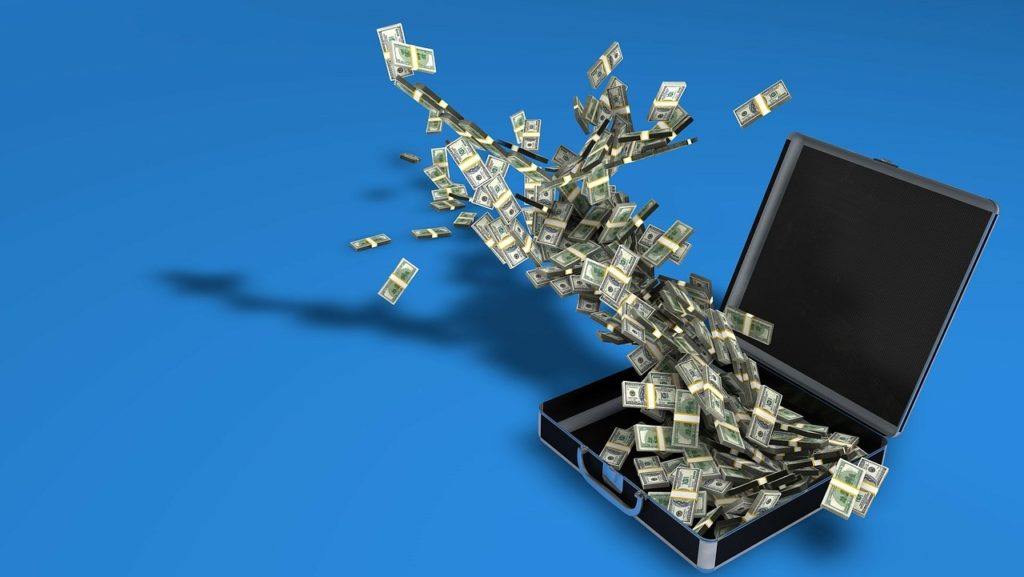

 Since Nayib Bukele became president of El Salvador, El Salvador has been in American media and global political discussion more than ever. While much of the attention focuses on Bukele’s mass incarceration of gang members and a decline in homicide of over 70%, Bukele has also drawn attention to his favoritism towards Bitcoin and how he […]
Since Nayib Bukele became president of El Salvador, El Salvador has been in American media and global political discussion more than ever. While much of the attention focuses on Bukele’s mass incarceration of gang members and a decline in homicide of over 70%, Bukele has also drawn attention to his favoritism towards Bitcoin and how he […]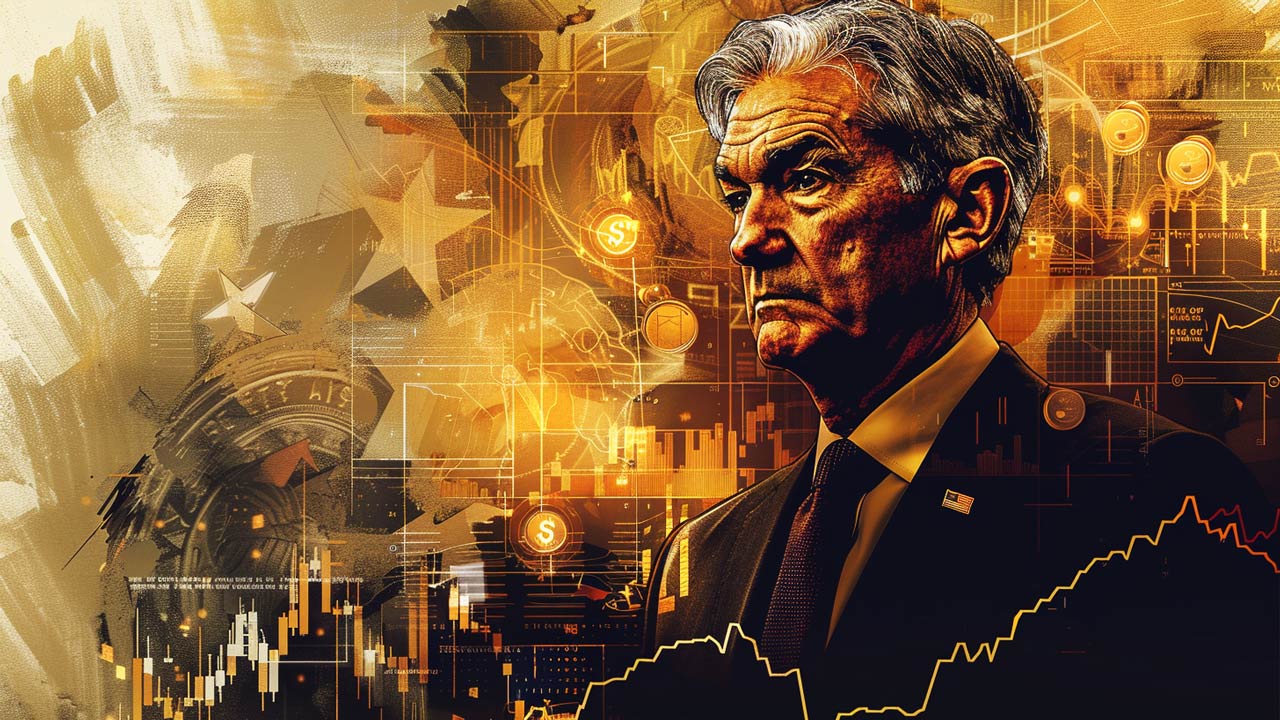 With gold hitting yet another awe-inspiring all-time high in the wake of Powell’s remarks reassuring markets (more or less) to expect rate cuts in 2024, a few analysts are pointing out risk factors for a correction — so is there really still room to run?
With gold hitting yet another awe-inspiring all-time high in the wake of Powell’s remarks reassuring markets (more or less) to expect rate cuts in 2024, a few analysts are pointing out risk factors for a correction — so is there really still room to run?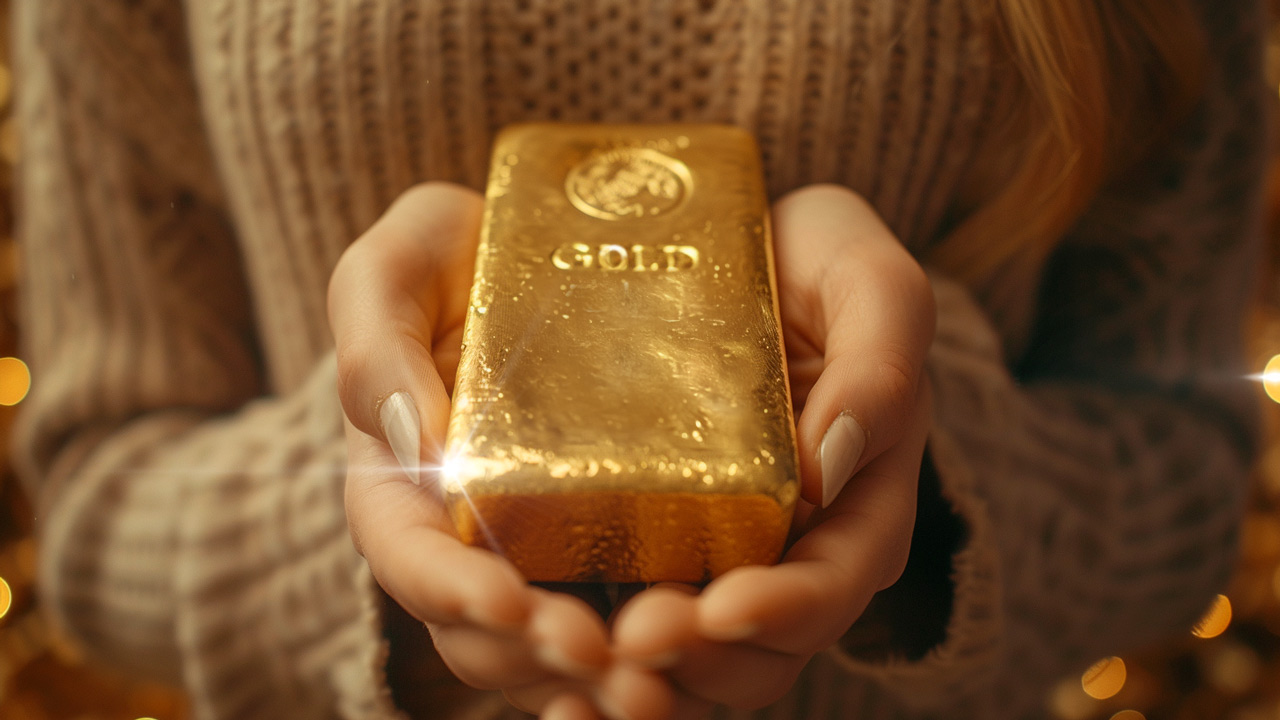 Gold hit a new all-time nominal high, surpassing the previous record set in December of the previous year. The precious metal’s price reached approximately $2,140, indicating a robust and continuing interest in gold as a safe-haven asset, despite a rather peculiar lack of fanfare from the media and retail investors. This latest peak in gold […]
Gold hit a new all-time nominal high, surpassing the previous record set in December of the previous year. The precious metal’s price reached approximately $2,140, indicating a robust and continuing interest in gold as a safe-haven asset, despite a rather peculiar lack of fanfare from the media and retail investors. This latest peak in gold […]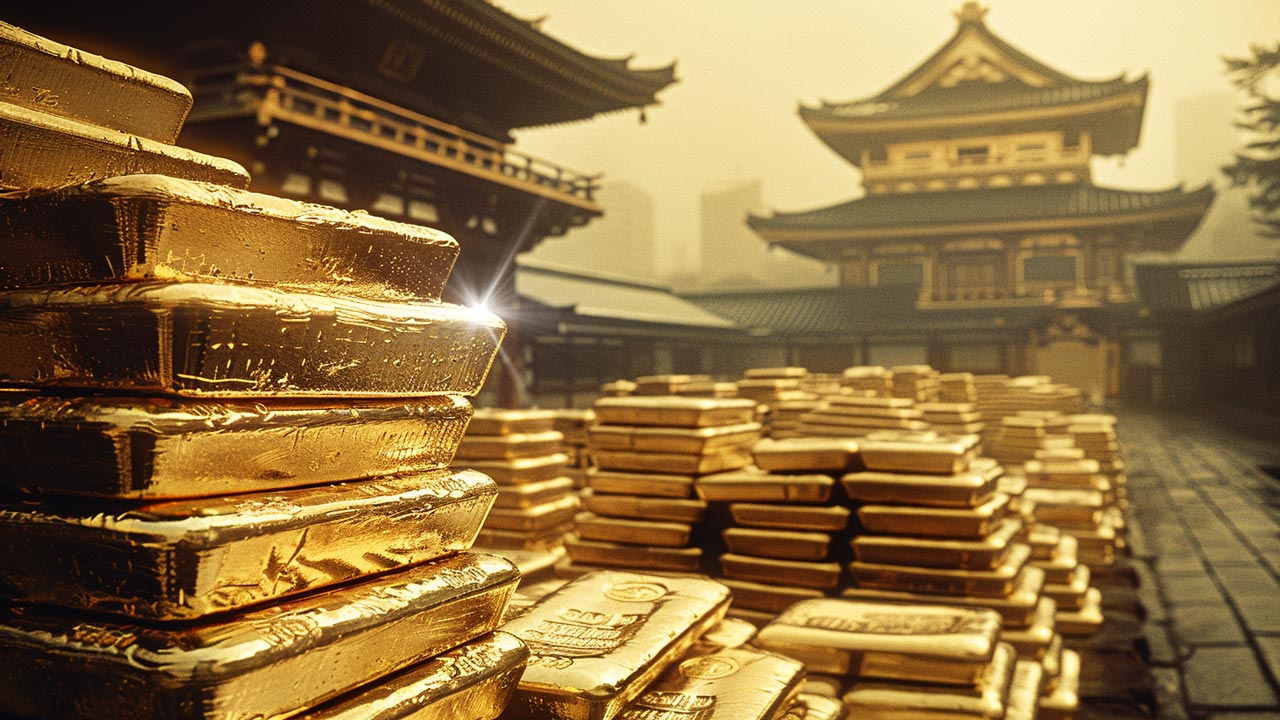 The gold price has been surging, with unprecedented central bank demand gobbling up supply. It has been a force to behold — especially as US monetary policy has been relatively tight since 2022, and 10-year Treasury yields have rocketed up, which generally puts firm downward pressure on gold against USD.
The gold price has been surging, with unprecedented central bank demand gobbling up supply. It has been a force to behold — especially as US monetary policy has been relatively tight since 2022, and 10-year Treasury yields have rocketed up, which generally puts firm downward pressure on gold against USD. 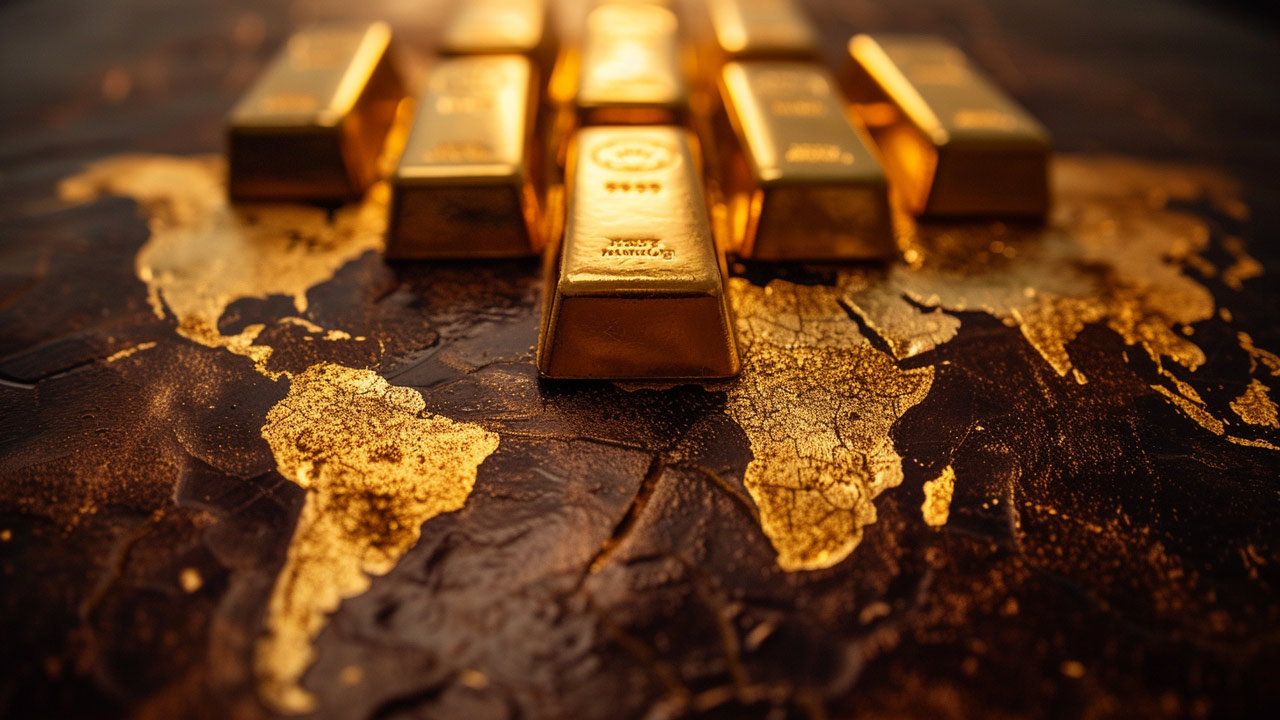 Total gold demand hit an all-time high in 2023, according to a recent report released by the World Gold Council. Last week, the World Gold Council (WGC) released its Gold Demand Trends report, which tracks developments in the demand for and use of gold around the world. Excluding over-the-counter (OTC) trade, 2023 gold demand fell slightly from 2022 […]
Total gold demand hit an all-time high in 2023, according to a recent report released by the World Gold Council. Last week, the World Gold Council (WGC) released its Gold Demand Trends report, which tracks developments in the demand for and use of gold around the world. Excluding over-the-counter (OTC) trade, 2023 gold demand fell slightly from 2022 […]